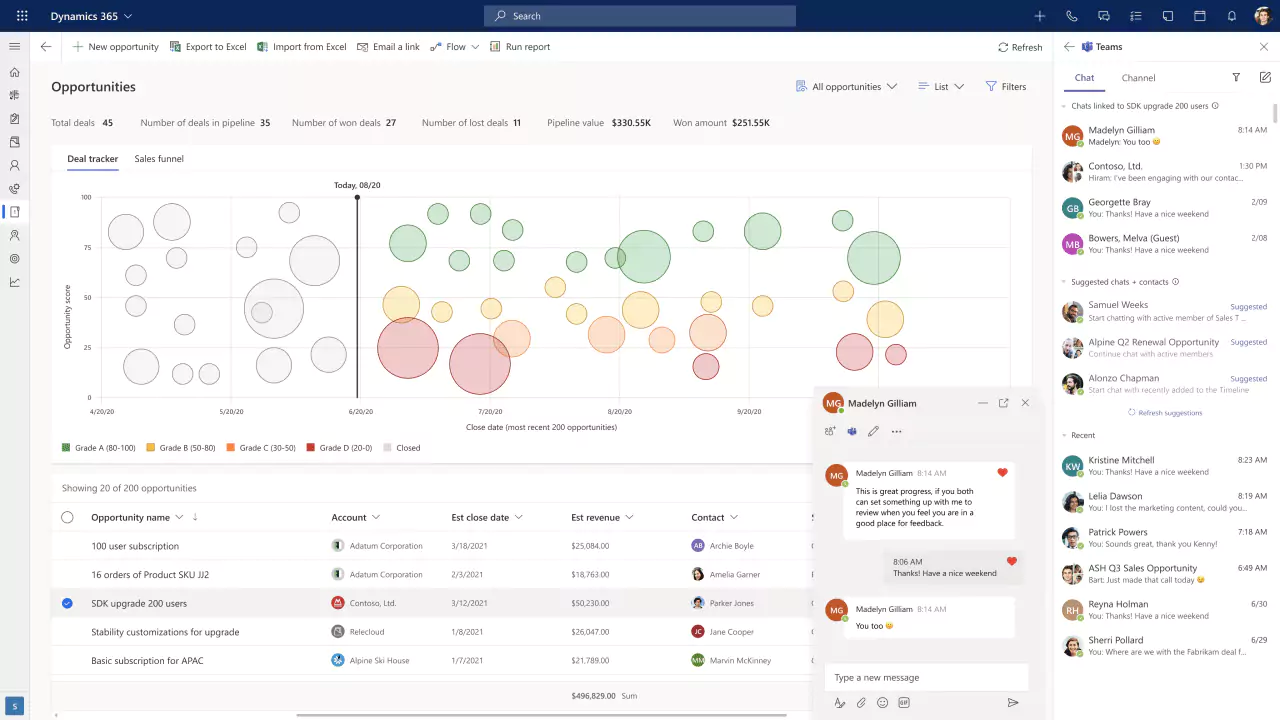Product Roadmap & Support

Dynamics 365 product roadmap and support
Dynamics 365 Customer Engagement is a suite of intelligent cloud-based applications that help businesses automate and streamline their operations. Dynamics 365 Sales, Marketing, Customer Service, Field Service, and Project Operations are all powerful tools that can help businesses streamline their processes, improve customer satisfaction, and drive growth. Learn more about the product roadmap and support for Dynamics 365, both from Microsoft and Microsoft partners.
Dynamics 365 roadmap
Microsoft is committed to enhancing and supporting the Dynamics 365 suite of applications to meet the evolving needs of businesses. Microsoft invests heavily in the development of these applications and has two release waves of new features a year that focus on areas such as:
- Sales execution and sales force automation
- Connect sales and marketing
- Agent productivity and unified routing
- Optimize service operations & empower frontline workers
- AI and automation to help users work more efficiently
- Enhanced project budgeting and forecasting
Modern lifecycle policy
Dynamics 365 Sales, Marketing, Customer Service, Field Service, and Project Operations are covered by the Modern Lifecycle support policy. This policy ensures that Microsoft will provide continuous support and maintenance for these applications with two updates released each year. These updates will include hotfixes, feature updates, and tax updates. Microsoft will automatically schedule upgrades to customer environments one week after the release is made available, but customers can reschedule the update within a 30-day window after the update is made available.
Dynamics 365 is further supported by Microsoft partners
In addition to Microsoft’s support for Dynamics 365, businesses can also receive additional support from Microsoft partners. Microsoft partners offer a range of services, including implementation, customization, and training, to help businesses get the most out of their Dynamics 365 applications. Additionally, these partners can provide support for both current and older versions of Dynamics 365 Customer Engagement applications, regardless of whether Microsoft still supports the product. The right Microsoft Dynamics 365 partner can assist you with applying the twice annual Microsoft updates, troubleshooting issues, creating customizations unique to your business, training users, and much more.

Collaboratively engage equity invested models
Monotonectally supply customized technologies via out-of-the-box innovation. Appropriately parallel task backend deliverables rather than resource-leveling networks. Compellingly productize adaptive schemas with user-centric ideas. Phosfluorescently incentivize resource sucking web-readiness vis-a-vis principle-centered e-business. Seamlessly develop optimal vortals before.
Fixed lifecycle policy
Microsoft’s on-premise versions of Dynamics 365, namely Dynamics CRM and Dynamics 365 for Customer Engagement, are subject to the Fixed Lifecycle policy. This policy comprises three phases of support. The first phase, Mainstream support, lasts for five years and includes updates, hotfixes, and service packs aimed to address bugs and issues with the base products. Users can also open a support case to report any application issues to Microsoft. After Mainstream support, the product enters the Extended support phase, which lasts for another five years. During this phase, users can only receive updates related to security vulnerabilities. This means that Microsoft will not fix any non-security-related bugs or issues unless they pose a security threat. Finally, after Extended support, the product reaches its end of life and Microsoft will no longer provide any updates or support for it.
In March 2022, Microsoft extended the Mainstream and Extended support end date by two years for Dynamics 365 Customer Engagement Apps, version 9 (on-premise) to allow customers to obtain security updates, request non-security updates, and receive incident support for an additional 2 years past the original end date. While Microsoft encourages customers to migrate to the Dynamics 365 cloud offerings, they remain committed to supporting existing customers.


